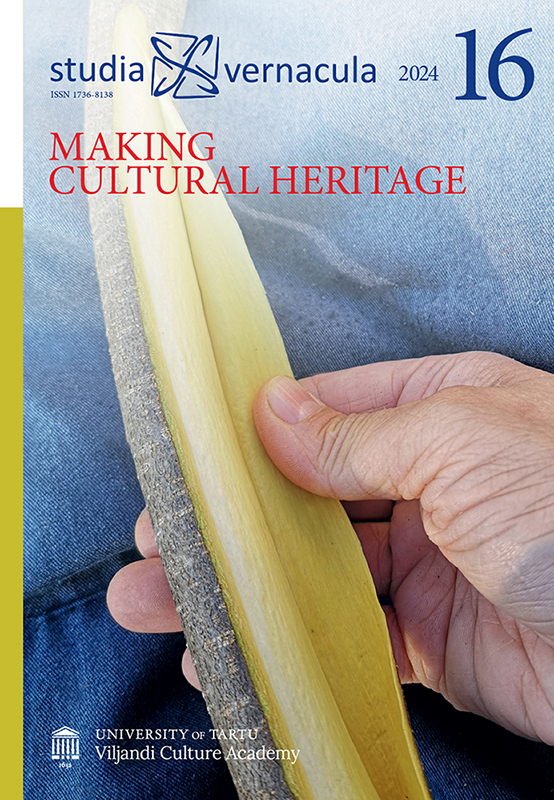Circular economies and the regeneration of land, craft, and biodiversity. Cultural ecologies of connection
DOI:
https://doi.org/10.12697/sv.2024.16.154-179Abstract
The idea of a circular economy is based on self-contained enterprises employing local people, producing goods and services from local resources, minimising waste and maximising internal recycling. Historically, farming systems in northern and western Europe operated in circular economies with integral craft practices. We now call this ‘traditional’ farming, and in recent times it has been replaced by industrialised systems, which are generally monocultural, based on the throughput of externally derived inputs, with waste as well as product leaving the system. Chemicals in fertiliser and pesticides are ecologically damaging. Crafts that have had utility for generations become redundant.
This article utilises cultural ecology as a theoretically based, and practically verified, behavioural approach to addressing how we are placed relative to the land and the actions we take within it. Cultural ecological modelling is used to make a case for regenerating traditional farming systems so that they are economically viable modern alternatives to industrial farming. Regenerative business models are emerging connected with environmental and lifestyle matters, such as organic farming, animal welfare, localised cuisine, sustainable fashion, heritage crafts and their products. Other developments are in services catering for the growing demand for leisure, educational, and heritage experiences. Digital technologies and social media globalise the potential market for new products, while the circular systems remain tailored to specific localities. This benefits communities culturally and ecologically, improving biodiversity and human and animal wellbeing by reducing some of the damaging externalities associated with industrial farming. The resurgence of traditional crafts is promoted and intangible heritage enhanced.
Regeneration requires people to have greater involvement in decisions about the management and regulation of their local environment. Devolution is proposed, which reconciles locally adapted custom with statutory forms of governance. This would promote adaptive cultural ecological governance reflecting the synergistic coexistence of nature and culture.
Keywords: biodiversity, circular economy, craft, regeneration, cultural ecology

